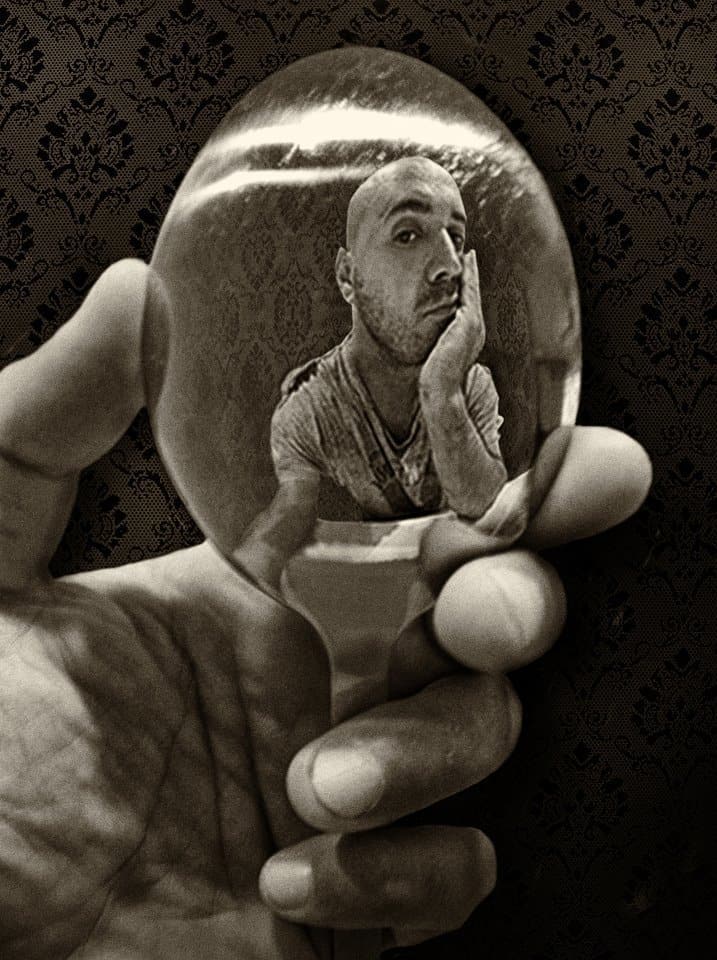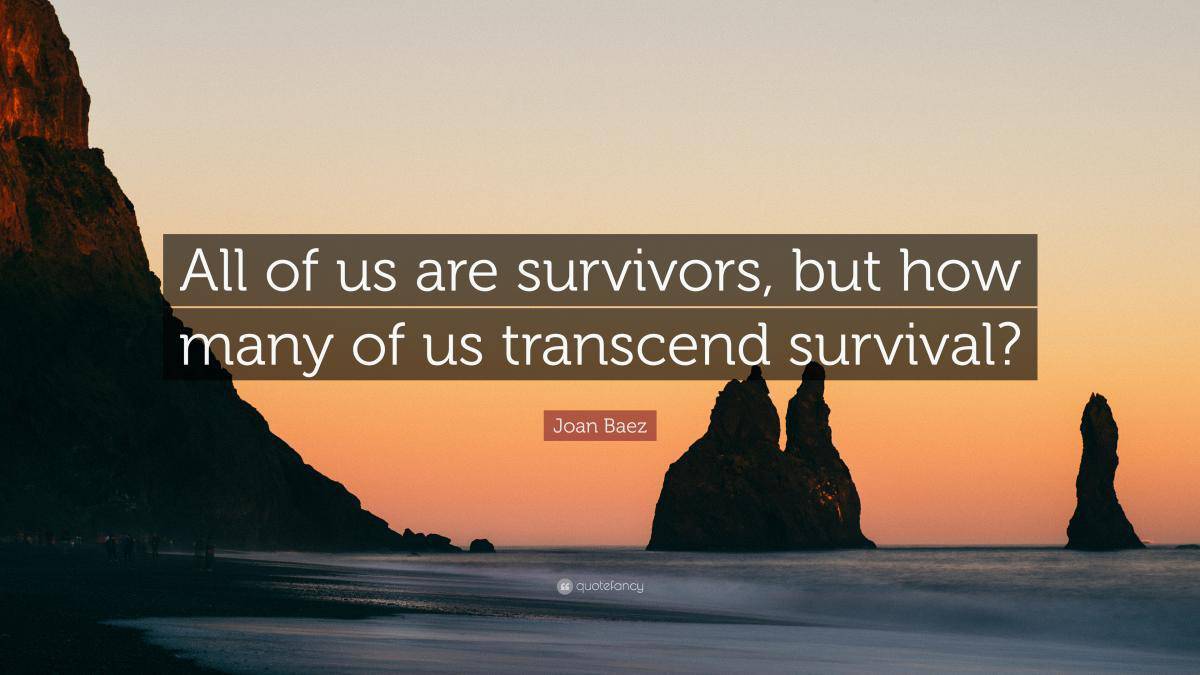Healing from a devastating past requires effective trauma therapy techniques. Of course it is always a good step to seek professional help especially if the trauma is too great, however, you can also apply certain techniques to help you along the way.
Healing from trauma is not easy. According to Susanne M. Dillman, PsyD, a therapist in Escondido, California, “learning about the stages of healing can be distressing, motivating, upsetting, or uplifting.” However, the best thing to do, she says, is to just acknowledge your emotional response to the stages of healing. This will allow you to “harness your emotion’s energy.”
Below is a list of trauma therapy techniques to implement to help you heal from trauma:
1. Get Closure

One of the reasons why people can’t move forward after a traumatic experience is that they haven’t had closure.
Closure, according to Good Therapy, “is any interaction, information, or practice that allows a person to feel that a traumatic, upsetting or confusing life event has been resolved.”
Robert Taibbi, Psychology Today author and legal support for children and women, says this can be done by “expressing what you could not express at the time of the event.”
He suggests writing a letter or two:
“Try writing a letter saying what you could not say then,” he says. “Then write a second letter, from them to you, saying what it is you most want them to say—that they are sorry, that it wasn’t your fault, that they loved you. Make the letters as detailed as possible, and allow yourself to write down whatever comes to mind.”
2. Recognize That There is Nothing Wrong with You

Survivors of violence or abuse feel ashamed for their encounter. They even blame themselves for not being able to protect themselves or their loved ones.
One of the most effective trauma therapy techniques is to tell yourself that it is not your fault. Don’t blame yourself for what happened. It is absolutely not your fault. There is nothing wrong with you. There is nothing to feel shameful about.
Where do the shame and blame belong?
CarmenLeah Ascenscio in Black Girl Dangerous says it belongs to the perpetrator of violence.
“Keep the shame where it belongs,” she says. “It is not yours to carry.”
Further, Lisa Firestone, a clinical psychologist, wrote in Psychology Today that one of the most powerful things a person can do is to acknowledge the negative definitions they have taken on as a result of their trauma.
“A person must accept that these definitions were based on things that were outside their control and have nothing to do with who they really are. In other words, it’s truly not their fault,” she says.
3. Link Positive and Negative Material

A person who underwent a traumatic event in his or her life has a high tendency to develop negative feelings as a result of that trauma. And this is all natural, says Jed Diamond in a Good Therapy article. He cited neuropsychologist, Rick Hanson, who said that this is because our brain was wired in such a way.
“Our brain was primed to learn quickly from bad experiences but not so much from the good ones,” he says.
According to Diamond, this is the main reason why the negative traumatic memories usually stick to our brains while the positive memories seem to slip away.
One trauma therapy technique that he suggests is to infuse our negative consciousness with the positive. He suggested Hanson’s strategy of using the image of a garden:
We imagine the beauty of the flowers we are planting and become aware of the weeds and gently pull them out so there is room for growth.
Hanson further explains this strategy:
“Whenever you want, let go of all negative material and rest only in the positive. Then, to continue uprooting the negative material, a few times over the next hour be aware of only neutral or positive things that may have been associated with the negative.”
4. Reclaim Control

It’s very common for a victim of a traumatic childhood to develop feelings of helplessness. And the sad thing is that this will carry on through adulthood. The worst thing that could happen is that it will affect the whole life of that person since their choices would be based on their pain. When this happens, they will forever become a victim of that trauma.
One of the best trauma therapy techniques to do in this situation is to try to reclaim control. Don’t let the past control your present.
The first step in doing this, according to Casa Palmera, is to let go of the old defenses and crutches you used as a child to navigate your trauma. However, you have to also put in mind that this takes time.
Haley Snyder of Huffington Post shared three tips to move forward if you’re trying to gain back control of your past. And this to “Give yourself grace, trust the process, and keep on trucking.”
5. Get Counseling

Suffering from post-traumatic stress disorder or PTSD has a negative impact not only on one’s health but on their life in general.
According to GoodTherapy, if left untreated, PTSD will result in other conditions, especially, mental health conditions.
Examples of these are depression, substance abuse, and anxiety. These occur whether the patient is a child or an adult.
While others eventually heal on their own, most people continue to be haunted by their traumatic past. This is why it is very important to seek counsel or professional help if you are suffering from PTSD.
A trauma therapist will not only listen to you but he will be able to recommend a therapy that will fit your situation.
Dr. F. Emelia Sam of MindBodyGreen advises to immediately seek help if your pain is already interfering with daily life.
“When your suffering is getting in the way of your focus, your self-care, or your ability to keep healthy relationships, you may not be able to pull yourself out of it. Get the appropriate help, whether it’s calling a hotline, joining a support group, or obtaining individual therapy. There is no shame in asking for aid. You need not suffer alone.”
6. Don’t Isolate
We all like to be left alone when we’ve experienced a traumatic event in our lives. But … isolating ourselves from other people will actually make things worse.
That’s why if you are suffering from PTSD, you need to find someone safe to talk to about your situation. Healing will only happen if you are able to share your pain with another “trusted” person.
If you are uncomfortable talking about what happened, don’t worry. Just give yourself time. You don’t have to force yourself to talk about it. The important thing is that you are not alone most of the time.
A wellness website cited other things that you can do to mingle with other people. And one of them is participating in social activities and doing “normal things.
You can also volunteer for a cause you are supporting. This will make you feel that you have the capacity to help other people.
According to the website, this will challenge the sense of helplessness that you felt during that traumatic event.
7. Take Care of Your Health

As always, it is highly encouraged that we should take care of ourselves by following a healthy lifestyle. Doing this will help us deal with stress better.
What does having a healthy lifestyle mean?
According to a wellness website, it means getting a lot of rest, eating a balanced diet, and having regular exercise.
The website mentioned that it is also very important if we stay away from alcohol and drugs.
“Alcohol and drugs might provide temporary relief but will inevitably increase your feelings of depression, anxiety, and isolation and can worsen your trauma symptoms,” it says.
8. Learn Self-Regulation

Perhaps one of the most helpful trauma therapy techniques is to learn how to self-regulate.
It is very common for people who went through a traumatic event to experience a roller coaster of emotions. This can be anger, guilt, sadness, and a host of other emotions.
If this is you, one of the things that you can try teach yourself is how to stay calm and be in control of your emotions.
A wellness website shared a few tips for overcoming these emotions. And these are mindful breathing, sensory input such as listening to calming music, staying grounded, and letting yourself feel what you feel when you feel it.
9. Try to Find Some Deeper Meaning in What Happened to You

Whenever we go through a difficult situation in our life such as a traumatic incident, our automatic response is to look at the negative side. That is, we are a victim. And technically, that is true.
However, there’s another way to look at it which will make it easier to heal from the trauma it has brought.
Why not be in the mindset of a survivor? Think about this: Despite what happened, you are still here. You survived one of the greatest hurdles in your life.
Psychologist, Dr. Martin Cohen, says, “Survivors often find that changes in their outlook on life are possible, even preferable.”
He encouraged to ask the question: “What have you learned from your traumatic experience?”
He then suggests recording these insights in a journal or voice them in a support group that is sympathetic to your situation.
10. Become Aware of Your Emotional Triggers and Learn to Cope with Them Creatively

One of the things we fail to recognize when we experience the effects of a traumatic experience is that our emotions are always triggered by something.
This may be something that we saw, heard, smelled, tasted, or experienced that reminds us of that particular traumatic event in our life.
This is why we should always be aware of those things that can trigger flashbacks and try to avoid them. However, we also know that we cannot always avoid things from happening. So when it happens, we should be creative enough to handle it.
Dr. Martin Cohen suggested positive self-talk.
“One true way to cope with this is to recognize that you are experiencing an emotional trigger and engage in positive self-talk,” he says.
An example that he gave is to tell yourself “This is frightening but I am safe now.”
11. Learn the True Meaning of Acceptance and Letting Go

Sometimes the reason why we cannot recover from a traumatic experience is that we refuse to accept that something happened to us. This hinders us from moving on and letting go because as long as we’re tied to this, the cycle of trauma will continue to linger.
The website, Uncover Your Joy, said that the common misconception about letting go is that we have to forget and no longer be affected by our past. However, if we think about it, this is irrational. Everything that happened in our past influenced us in a way and shaped how we see the world today.
According to the website, letting go is about accepting what happened and its current impact.
“It’s not about repressing, forgetting, or dismissing. Letting go means holding our arms wide open to hug our past self. It means reminding ourselves that we can now transform this past into something that fuels our dreams,” it says.
12. Connect with Nature

Nature has healing powers. It brings calmness and removes your stress and anxiety. When you are suffering from a traumatic experience, nature can be your best friend.
A wellness website explained that one of the effects of trauma is a disconnection between the world and the larger community of living things. And, we can feel a greater connection with other people and the world if we get back in touch with life’s cycles.
Here’s what they suggest:
“Place plants where they can be seen regularly. Take walks by lakes, oceans, mountains, valleys—anything that allows reconnection with the larger world. If possible, have an animal or pet as part of daily life. Caring for and receiving unconditional love from an animal can be a powerfully healing experience, and can be a precursor to more rewarding relationships with other people.”
13. Clean up your diet

Most people who are suffering from trauma tend to lose track of a healthy diet. Some would resort to overeating and some would tend to not eat at all. However, good nutrition is essential if you want to heal from trauma.
Dr. Jockers, a doctor of natural medicine explains why:
“Given that there are striking analogies between the neurobiological correlates of psychological stress and inflammation in the body, anti-inflammatory diet is most likely your best choice. Your functional medicine doctor can determine the best diet to increase your energy and minimize your mood swings and symptoms of depression.”
14. Limit your media exposure

Media, in all its forms, exist to entertain us. However, if you are dealing with a traumatic past, it may bring more harm than good.
A HelpGuide.org article on traumatic stress says that media exposure, especially if it contains reminders of one’s traumatic experience, can be further traumatizing.
In fact, even people who are not directly affected by an event can even develop traumatic stress if they keep on viewing images or videos of a disturbing event. The effect will be more profound if the person has a personal experience related to that event.
So if you are dealing with something traumatic, try to lie low on television and social media. Refrain from watching images and video clips that will distress you. You may try shifting to just reading news or magazines. But if it still causes stress, you should totally break off from any form of media for a while.
15. Know that your feelings are valid
When you’ve just gone through a traumatic event in your life, you will go through different emotions.
According to Psychology Today, the most common emotional reaction to a trauma is being fearful and anxious. And this is very normal since a person just went through a scary event in his or her life.
Other emotions that can result from a trauma are anger, sadness, guilt, and feeling numb – quite a lot, right?
But don’t worry … it’s perfectly valid to go through these emotions. So, don’t try to suppress them if you feel them. Accept these feelings.
Although it may take a while for you to get over this emotional rollercoaster, give yourself time.
HelpGuide.org advises to give yourself time to heal and to mourn any loss. Don’t force yourself to heal immediately and be patient with yourself. Recovery might take some time … but it will happen.
What trauma therapy technique can help you overcome trauma?
Dealing with a traumatic event in your past is not a walk in the park. It can take months and even years to heal from it.
One thing that can help you deal with trauma is to adopt the suggestions that we listed above. However, we always recommend seeking professional help. A professional trauma therapist will know exactly what trauma therapy technique works best for your specific situation.


